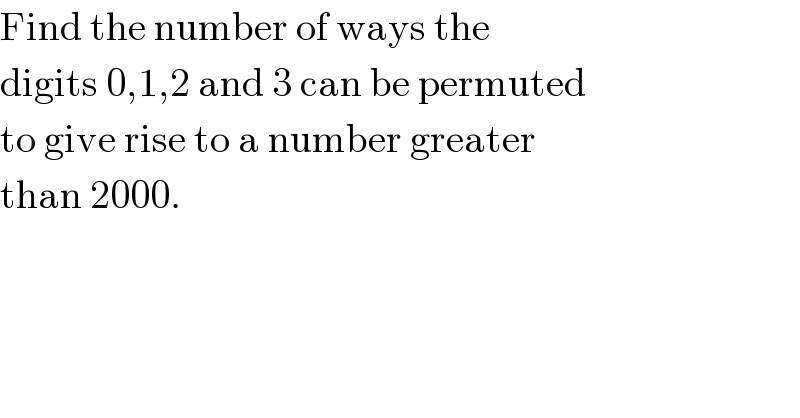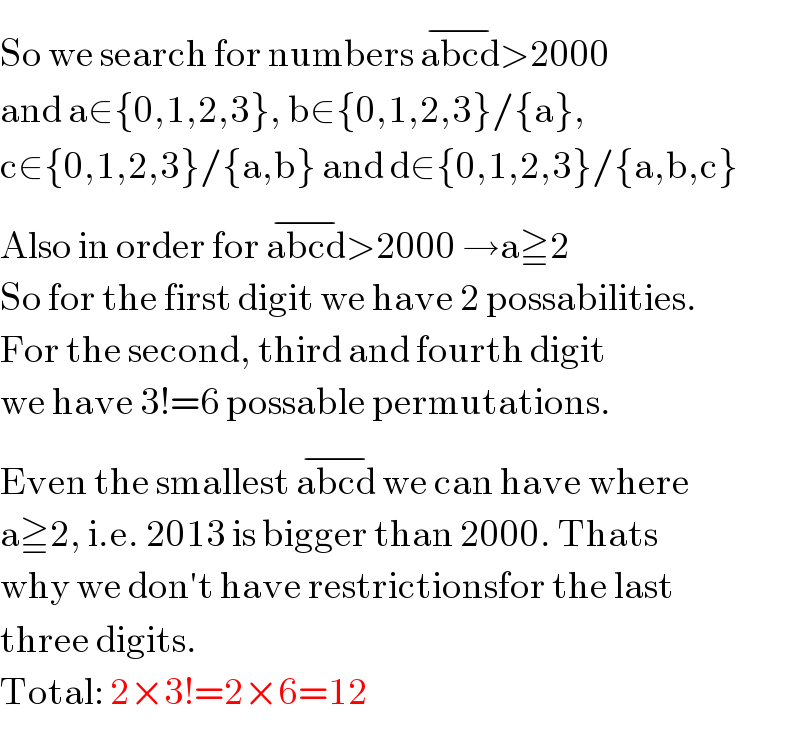
Question and Answers Forum
Previous in Permutation and Combination Next in Permutation and Combination
Question Number 17770 by chux last updated on 10/Jul/17

Answered by alex041103 last updated on 10/Jul/17

| ||
Question and Answers Forum | ||
Previous in Permutation and Combination Next in Permutation and Combination | ||
Question Number 17770 by chux last updated on 10/Jul/17 | ||
 | ||
Answered by alex041103 last updated on 10/Jul/17 | ||
 | ||
| ||